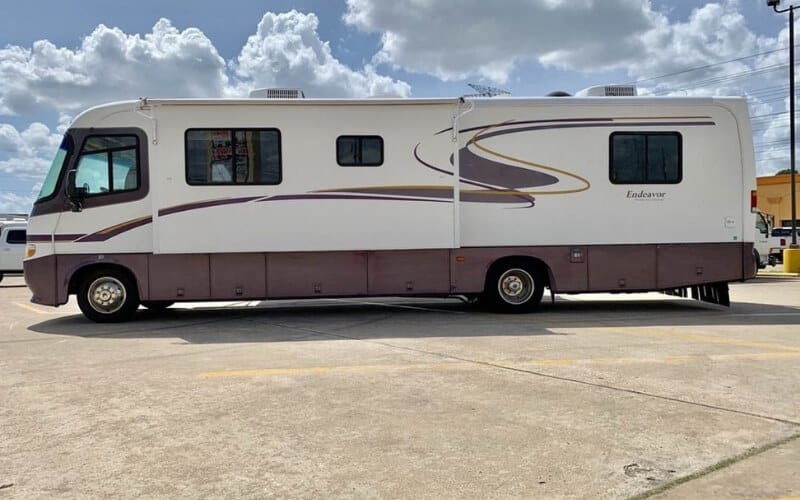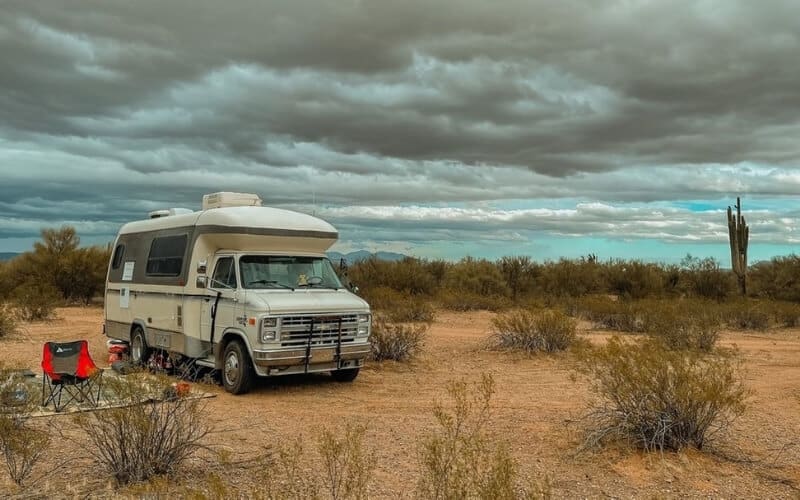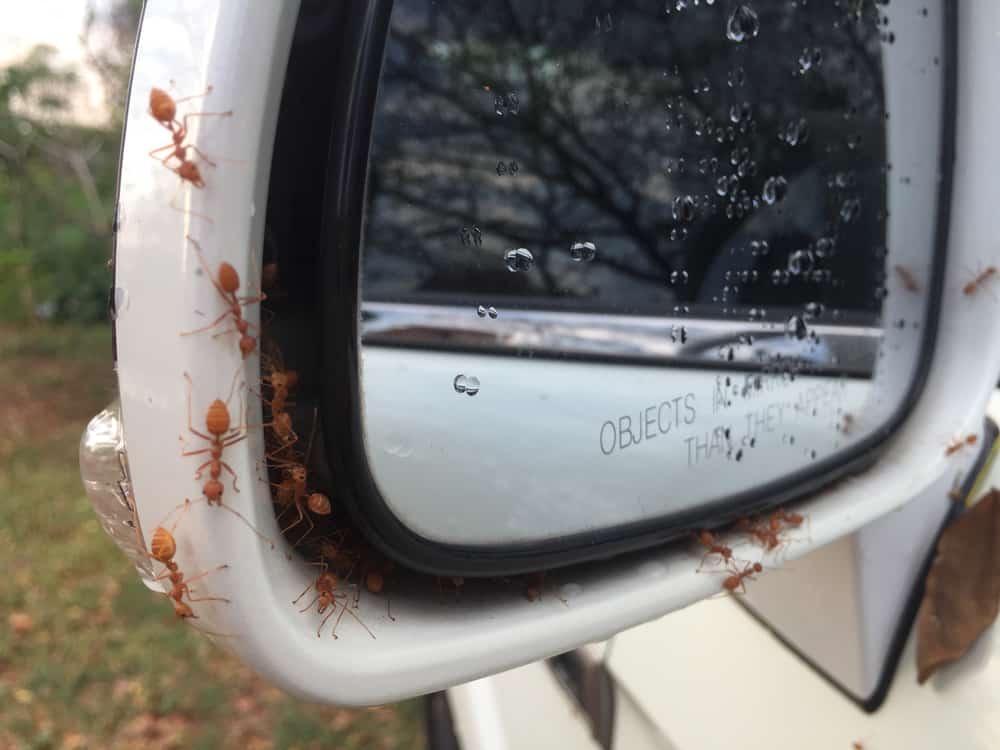There are several different reasons why you might be interested in having an RV inspection performed.
Right now the used RV market is flooded with a lot of attractive options.
Some people might be selling a perfectly fine RV as they upgrade to meet their family needs, whereas some simply don’t have the budget to fix up their older RV.
Not to mention the fact that since RVs aren’t used as much as say a daily driver vehicle, making them prone to lapses in what should be routine maintenance.
If you are thinking about buying a used RV, you might be worried about inheriting someone else’s problems.
One way to tackle this problem head-on is to request an RV inspection. Depending on the type of RV and it’s age, an RV inspection can be very affordable, or steep in price.
So, how much does an RV inspection cost?
The cost of RV inspections start out at $50 to $100. Though some of the comprehensive inspections can cost as much as $1,000. It’s also worth noting that some states require a pre-purchase inspection before you can legally drive it on the road. This can cost an average of around $500 to $600.
Why Do You Need a Certified RV Inspection?
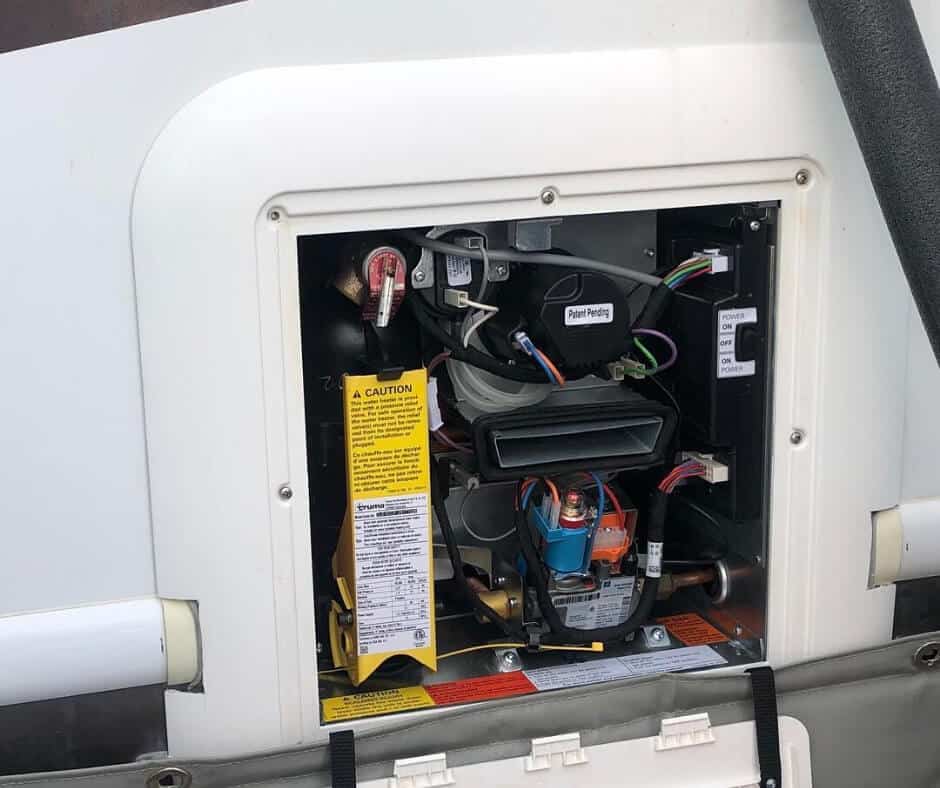
An RV is a major purchase for just about anyone. The last thing you want to do is sink a ton of money in an RV that will break down on you, fail the state-required inspections, or have a nasty leak in the wastewater storage systems.
When you weigh the cost of these problems against the cost of an inspection, I think you’ll find the inspection pays for itself both in preventing problems as well as peace of mind.
To really pin down the cost of an RV inspection, we will need to take a closer look at the different types of inspections and the reasons for them.
Mandatory safety inspections that are required by the state don’t necessarily cover all the things you want in a pre-purchase inspection.
What Are The Different Types Of RV Inspection?
It’s worth bearing in mind that there are different types of RV inspections.
Some are required by the state to ensure the vehicle is roadworthy, some are requested as part of the pre-purchasing process, and some are specific to a certain class of RV.
1: The Pre-Purchase RV Inspection
A pre-purchase inspection is sometimes requested for private sale. It tends to be more common with higher value RVs like motorhomes and fifth wheel campers.
Though there certainly are some high-end luxury travel trailers that have needed a pre-purchase inspection.
This type of RV inspection typically looks at the mechanical parts, as well as noting the state of the interior and exterior. Most are conducted by a certified third party.
The cost of a pre-purchase RV inspection from a certified mechanic on a small motorhome or fifth-wheel trailer will run you anywhere from $150 to $300 depending on the size and complexity of the RV and its drive train.
Inspecting a travel trailer, toy hauler or popup camper is relatively inexpensive, as there isn’t a drive train involved. The cost here is usually on the low end around $150.
It should include things like testing any electronic braking assist systems, the state of the bearings, and the condition of the frame.
This safety check is important for making sure that the camper can be safely and legally towed on local, state, and federal highways.
However, the price starts to go up when you get into larger motorhomes. These cannot typically be put on a lift in an automotive shop.
They usually have diesel engines, which means you’ll need to find a diesel mechanic.
A thorough pre-purchase RV inspection also needs to include a meticulous inspection of the RV’s plumbing.
Even a seemingly small leak in something like a black or gray water storage tank could turn into a major problem and a major fine later on down the proverbial road.
2: Mandatory RV Inspections
Most states require mandatory inspection of any new RV before it’s allowed to be legally driven on the road.
Some states have different requirements for how often an RV needs to be inspected, and what level of inspection is required. So, make sure to check what your state’s regulations are.
Many states also include mandatory emissions tests as well as safety checks. In some states, the requirement for an emissions test is often set at 5,000 miles a year.
If you drive your RV more than that, chances are you will need at least an emissions test.
The safety check portion of the inspection will include checking the lights, the brakes, the state of the tires, and the suspension system.
However, these are safe and operations checks and have little to do with the state of the drive train, and critical components like the engine and transmission like a pre-purchasing inspection do.
If you are thinking about purchasing an RV and the seller says something to the effect of “It passed the mandatory state inspection.”
You need to keep in mind that the state of the engine and transmission are still very much uncertain.
3: A Mandatory Camper Inspection
Campers also have their own special mandatory inspection process.
The requirements can vary from state to state, but most campers with a gross vehicle weight rating of 3,000 pounds or more need a safety inspection each year to be licensed to travel on state and federal roads.
This type of camper inspection includes the brakes as well as the frame and making sure that the wiring harness and lights are all in good working order.
These inspections rarely involve the plumbing and storage tanks.
Where Can I Find An RV Inspector?
One of the best places to start looking for an RV inspector is the registry of the National RV Inspector’s Association.
It’s an organization designed to help you connect with certified professional RV inspectors.
Are There Different RV Inspection Levels?
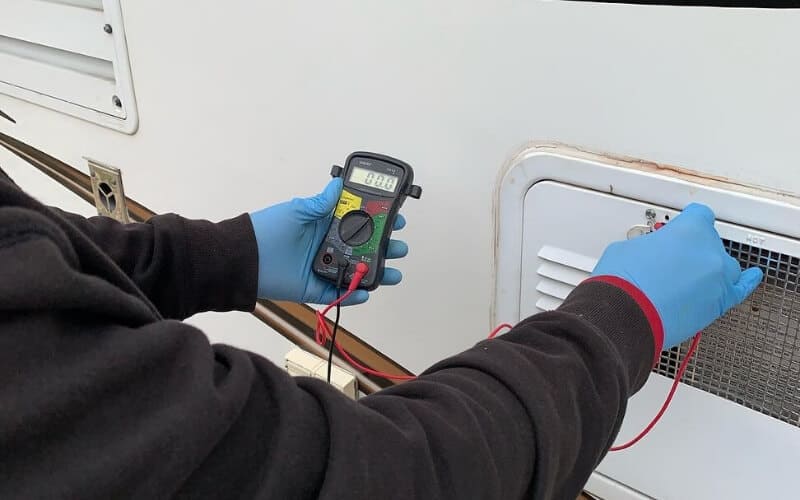
There are two different RV inspections levels to consider as part of the pre-purchasing process.
1: Level 1 RV Inspections
A Level 1 RV inspection is essentially a safety inspection. It looks at key factors like the:
- The pad wear and functionality of the braking system
- The tread and state of each of the tires
- The general state of the frame
- The structural integrity of the tongue
- The lights and wiring harness
Depending on the size and type of the RV this inspection can take between two to three hours.
What Is The Average Cost Of A Level 1 RV Inspection?
The cost of an level one RV inspection generally ranges between $200 to $500. Some inspectors charge more based on their experience level, or offer additional services like checking belts and hoses.
2: Level 2 RV Inspections
A level 2 inspection takes more factors into account and includes the safety checks of a level one inspection. A level two inspection also includes important things like:
- Checking the state of the engine
- Checking all the fluids
- Lab tests for the water storage tanks
The amount of time can vary depending on the size and type of RV. Most level two inspections can take up to 8-hours. If lab tests need to be done, it might take a week or two to get the final results.
The added time and testing also translates to a higher cost. For a level two RV inspection, you are typically looking at a cost of between $500 to $1,000.
It takes up to 8 hours and lab work is done on the vehicle’s fluids. The lab work can take over a week to get back, so people looking to make a quick purchase may not be able to get all of the results of their inspection before making their purchase.
These inspections will cost anywhere from $500 – $1,000.
Can I Do My Own Pre-Purchase RV Inspection?
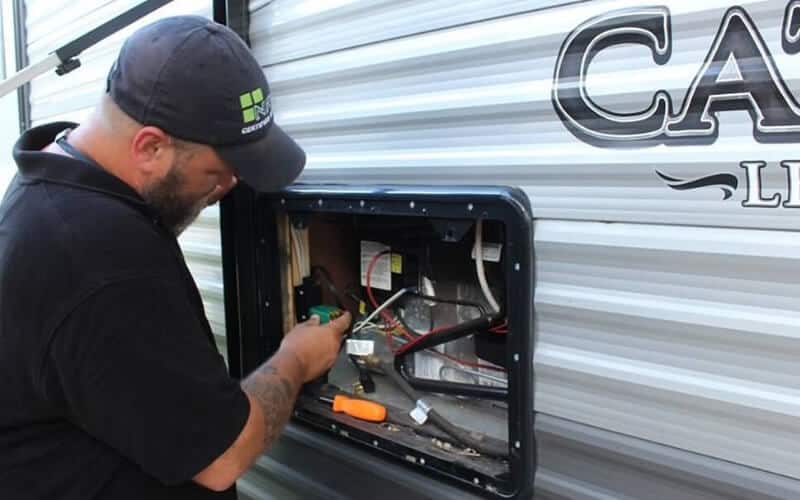
When it comes to making sure everything in the RV is in good working order, you can indeed perform your own pre-purchase RV inspection.
Just bear in mind that your findings will not influence any state mandatory inspections, which must be performed by an accredited and certified RV inspector.
If you are mechanically adept and experienced, you might be able to find something that a professional RV inspector might miss.
Especially if you are buying an RV from a dealership that specializes in selling used RVs on consignment.
If you happen to catch something that the professional inspector missed, you might be able to take legal action.
The disadvantage of doing your own RV inspection is that you likely have less experience and acumen than a professional inspector.
Anything you happen to miss still leaves you liable for any costs or potential fines later.
Frequently Asked Questions
Is An RV Inspection Required By A Lending Agency?
These days most reputable lenders require an RV inspection as part of the purchasing process when you are going through a dealership.
Depending on the age of the RV and the terms of the lender’s offer, you might also need to have an inspection performed by a certified inspector when you are buying from a private party.
Though who is responsible for the cost of the inspection might be negotiable.
Will An RV Inspection Affect My Warranty?
There are some RV’s that come with warranty coverage of three, five, or even as much as 10-years. Many of these policies can be transferred from one owner to the next.
However, they often require a level 1 or level 2 RV inspection to be performed to ensure that the RV has been treated responsibly.
If there are signs of things that the previous owner did that void the warranty coverage, the manufacturer might not honor the warranty when the RV is transferred to your name.
In Conclusion
Buying a used RV or an RV that’s on consignment with a dealership is certainly a major investment.
Having a pre-purchase inspection performed is a great way to ensure that you aren’t picking up someone else’s problem.
It’s best to seek out a certified and professionally licensed RV inspector from the National RV Inspector’s Association’s registry.
That way you know you are getting someone who is truly certified to get the job done right the very first time.
They can also certify the safety inspection, which your state is likely to require for the RV to be licensed and considered roadworthy.
Just bear in mind that the RV inspection cost will vary. For a Class A motorhome, you might be looking at an inspection cost of $750 to $1,000. Though a camper safety inspection might only cost your $150 to $300.
If you are buying from a private party and they claim that the RV past the mandatory state inspection, remember that this is just a check of the RV’s safety systems and does not include the drive train.
In a situation like this, you might still want to insist on a professional inspection.
If you are mechanically capable, you might want to give the engine, belts, hoses, and the transmission a good personal inspection as part of a test drive.

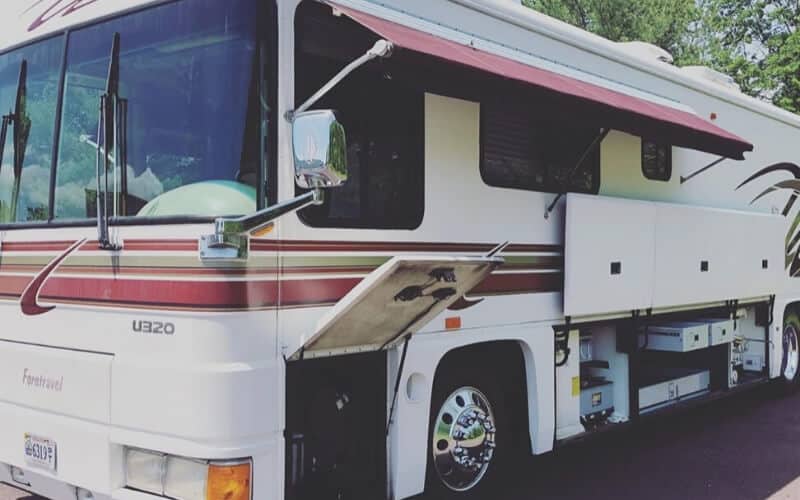
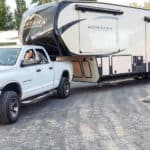
![Top 7 Best Lightweight Pop Up Campers in [currentyear]: Small Tent Trailers and RVs for Easy Travel 5 Lightweight Popup Campers You Can Pull With A Small Tow Vehicle](https://www.rvingknowhow.com/wp-content/uploads/2021/01/Lightweight-Popup-Campers-You-Can-Pull-With-A-Small-Tow-Vehicle-150x150.jpg)
